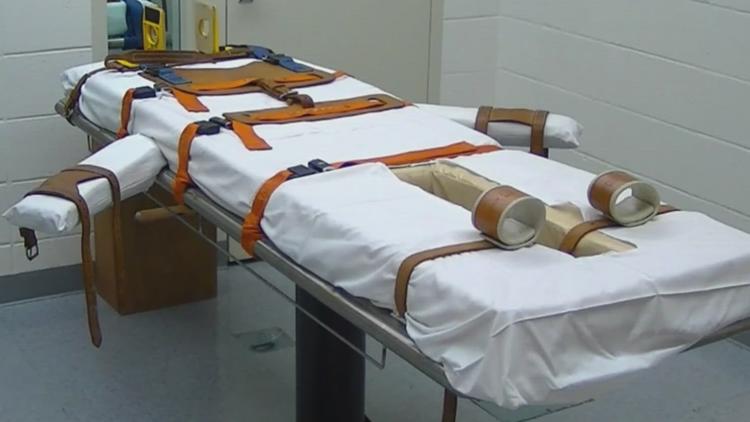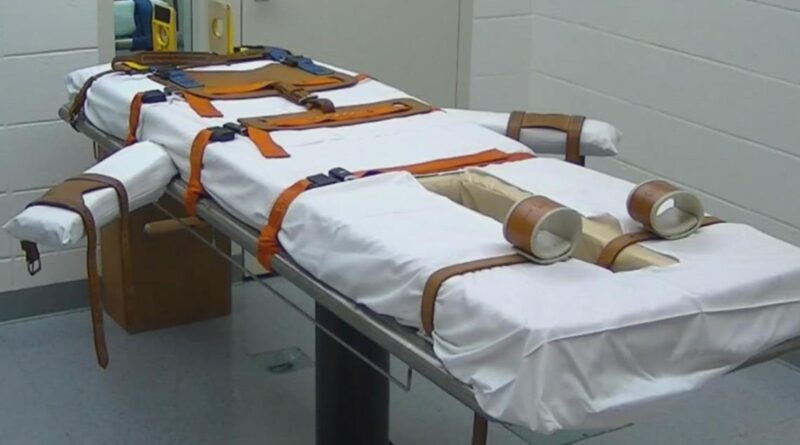Nitrogen hypoxia execution law in Arkansas sparks controversy | Here’s why

Now that Arkansas has officially approved nitrogen hypoxia as a form of execution, Governor Sarah Huckabee Sanders says she’s not rushing to resume executions.
LITTLE ROCK, Ark. — Arkansas’s 95th General Assembly delivered a wave of new legislation.
However, few measures sparked more controversy than the law Governor Sarah Huckabee Sanders signed, approving nitrogen gas as a method of execution.
“These individuals, if they walk in our society and take lives, then I will protect life through this method,” said Sen. Johnson, as he defended the measure.
Just last month, Louisiana carried out its first execution by nitrogen gas on death row inmate Jessie Hoffman Jr. Prior to that, Alabama used the method on Kenneth Eugene Smith.
“A horrific act of violence cannot be answered with another horrific act of violence. It doesn’t make us tough. It doesn’t make us just, it just means we too have committed a horrific act of crime.” State Sen. Greg Leding (D-Fayetteville) said.
Now, Arkansas has joined the list of states that will be turning to nitrogen gas amid ongoing challenges in obtaining lethal injection drugs.
Currently, 24 inmates sit on death row in Arkansas.
After four executions by lethal injection in 2017, the state has struggled to secure the necessary drugs, prompting the shift to this alternative, but not everyone agrees it’s the right path forward.
“I think there are lots of issues with it,” said Rep. Tippi McCullough (D- Little Rock). “It’s somewhat experimental, only been tested in a state or two. Historically, it’s been used as a method of extermination that no one should appreciate.”
Despite opposition, Republican leadership in the Senate sees the law as a necessary move.
“We have consequences,” said Senate President Pro Tempore Bart Hester. “If you want to take a human life, you’re going to pay for it with human rights. We value all human life in the state of Arkansas. If you voluntarily take one, we’re going to take one back.”
The debate also reignites scrutiny over Arkansas’s past executions, especially the 2017 case of Ledell Lee, who was executed under former Arkansas Governor Asa Hutchinson.
Lee had been convicted of the 1993 murder of Debra Reese, but in 2020, new DNA testing, conducted three years after his death, revealed that his DNA was not on key evidence: a wooden club and a bloody shirt found at the scene.
Instead, the DNA of an unknown male was found.
“They affirm the convictions. It’s my duty to carry out the law,” Hutchinson said at the time, as he referenced the court’s decisions.
It’s cases like Lee’s that compelled Rep. Nicole Clowney (D- Fayetteville) to vote against the nitrogen gas execution bill.
“I’m not presuming to know the truth in that case,” Clowney said. “But we spent a lot of time today talking about giving criminals what they deserve and presuming they’ll be the only ones impacted by this law. They won’t be as long as humans are responsible for these decisions, we will get it wrong sometimes.”
Two years after leaving office, former Governor Asa Hutchinson said the Ledell Lee case remains one of the most difficult decisions of his administration. The passage of the new nitrogen gas execution law prompted him to reflect on that chapter and how the state is now moving forward.
“The legislature did a good job evaluating what methods of execution can be safely and humanely used,” he said in a recent interview. “The Eighth Circuit court was upheld nitrogen hypoxia as constitutional. Each case will still be reviewed, but I expect it to stand up to legal scrutiny.”
As Arkansas prepares for possible future executions under the new law, public sentiment remains deeply divided.
“How are we to teach our young people that people matter, when our own state ends someone’s life in such an excruciating way?” one resident asked.
Others, like Rep. Jeff Wardlaw (R-Hermitage), explained how it’s a tragic but necessary choice.
“This is not an easy decision, and it never will be,” Wardlaw said. “But I hope it wasn’t easy when they took the lives of the victims they took.”
Despite having signed the bill last month, Gov. Sanders explained that she is in no rush and doesn’t have an exact timeline for restarting executions.
“I think anybody that is rushing into a decision like that is not the one making the decision and doesn’t understand the severity and the responsibility that comes with it,” Gov. Sanders said. “I’m certainly not rushing to take action on that. We will be very thoughtful and deliberative as we go through the process.”

